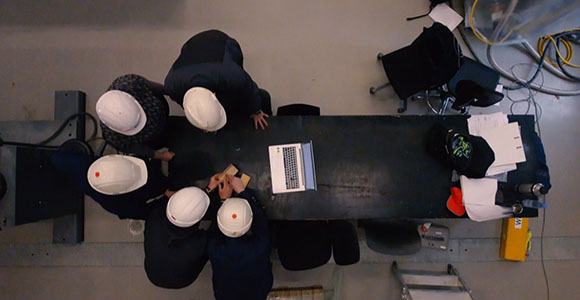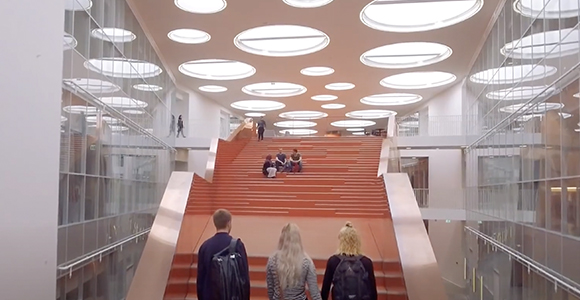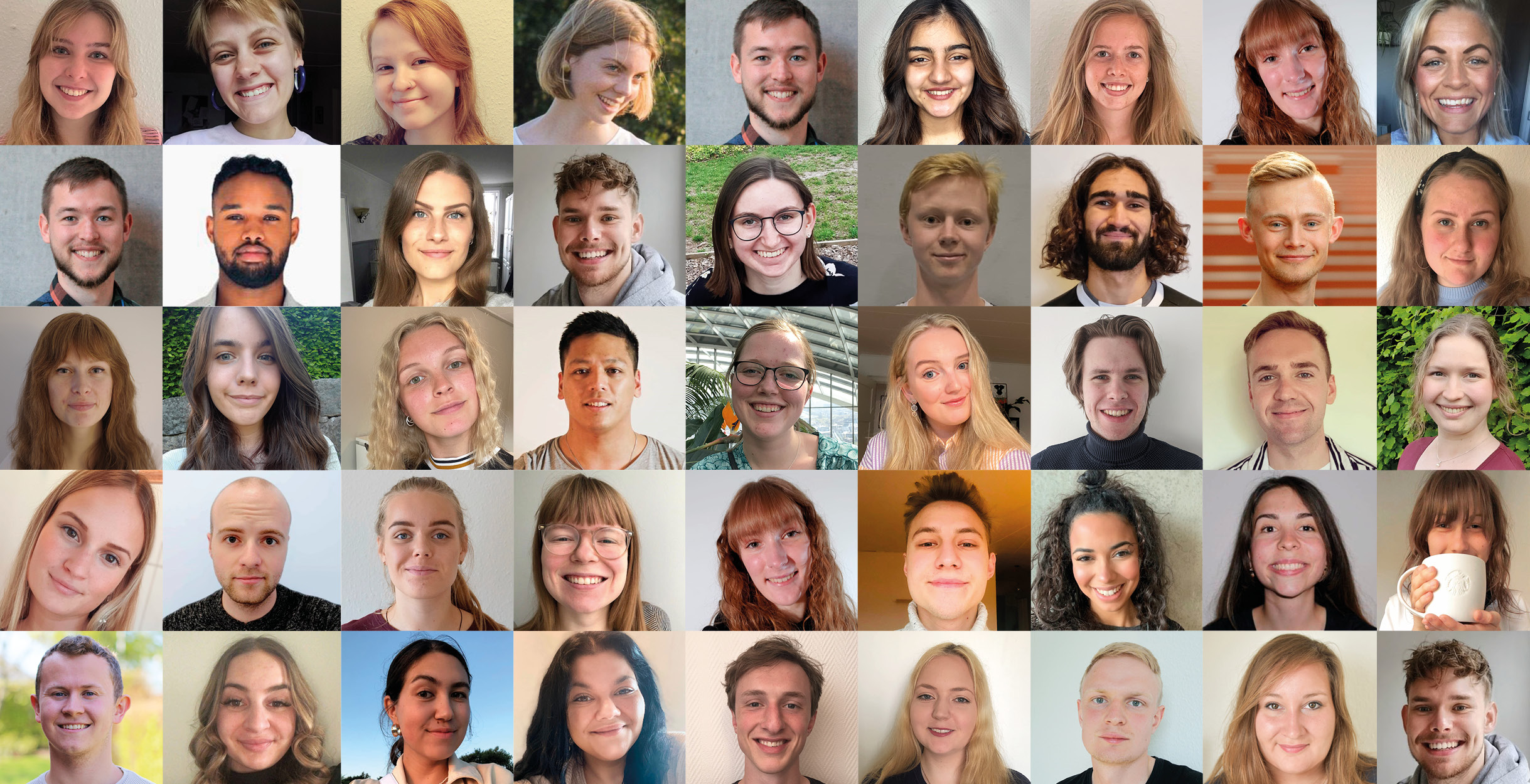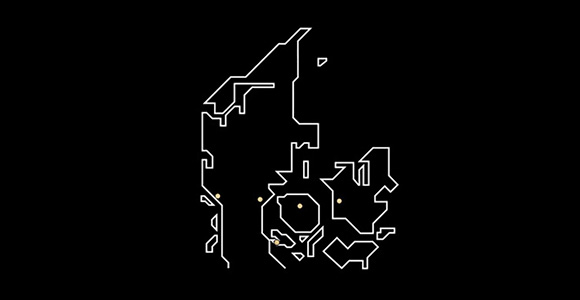Create a sustainable future for buildings and cities
As a civil engineer, you will play a crucial role in the development of sustainable solutions in construction and urban planning. You will be trained to work across disciplines and gain an understanding of total design, integrating technical, aesthetic, social and economic aspects.
Throughout your studies, you’ll develop strong competencies in urban planning, building design, bridge and structural design, and facade design, where you learn to incorporate sustainability and functionality into the solutions you help create. As a building services engineer, you become an expert in crafting holistic solutions.
What will I learn?
Basic subjects such as mathematics, statics, physics and 3D modelling form the foundation. You’ll delve deeper into topics like digital construction, virtual reality, indoor climate, resilience and sustainability. Sustainability, design and digitalisation are recurring themes throughout the programme.
During your studies, you’ll engage in project collaboration and design development. Each semester, you’ll participate in our engineering design studio, where groups work together to tackle complex challenges, strengthening your creative problem-solving skills and collaborative abilities.
You’ll be trained to develop, design, calculate and project new solutions using computer design. Our state-of-the-art laboratories provide practical opportunities to test your ideas. Using advanced technologies such as 3D printers, CNC machines and robots, you’ll create models and test the load-bearing capacity of materials in our construction labs.
How is the programme structured?
The initial semesters blend fundamental theory with applied design and engineering science. As you progress, courses become more specialised, allowing you to improve your skills in the subject area that interests you most.
In the first semester, you’ll be introduced to your future field of work: the built environment. We’ll explore what the built environment currently encompasses, as well as how we can make it more sustainable for the future. Moving on to the second semester, the main theme is building technology and building design. In the third semester, we’ll delve into digitalisation and urban development. As you progress to the fourth semester, the central theme will be structural engineering and digital design. The fifth semester emphasises innovation and entrepreneurship, and you also can study abroad during this period. Finally, in the sixth semester, you’ll work on your bachelor’s project, selecting a topic and consolidating all the knowledge acquired from previous semesters.
Can I continue my studies?
The bachelor programme lasts three years, after which you take the two-year master programme to become a civil engineer. From the bachelor programme, you can continue your studies and, for example, take a MSc in Civil Engineering.
What can I become?
You will be trained for jobs in planning, design, engineering and execution of building and construction projects in consulting engineering firms, architectural firms, material manufacturers, public administrations, property developers or construction companies. You can, for example, get a job as a specialist, consultant, designer, project manager or construction manager.
Why you should study Civil Engineering...
- You will learn to incorporate the UN's Sustainable Development Goals into solutions
- You will be able to develop and shape the constructions of the future
- You will have good career opportunities




